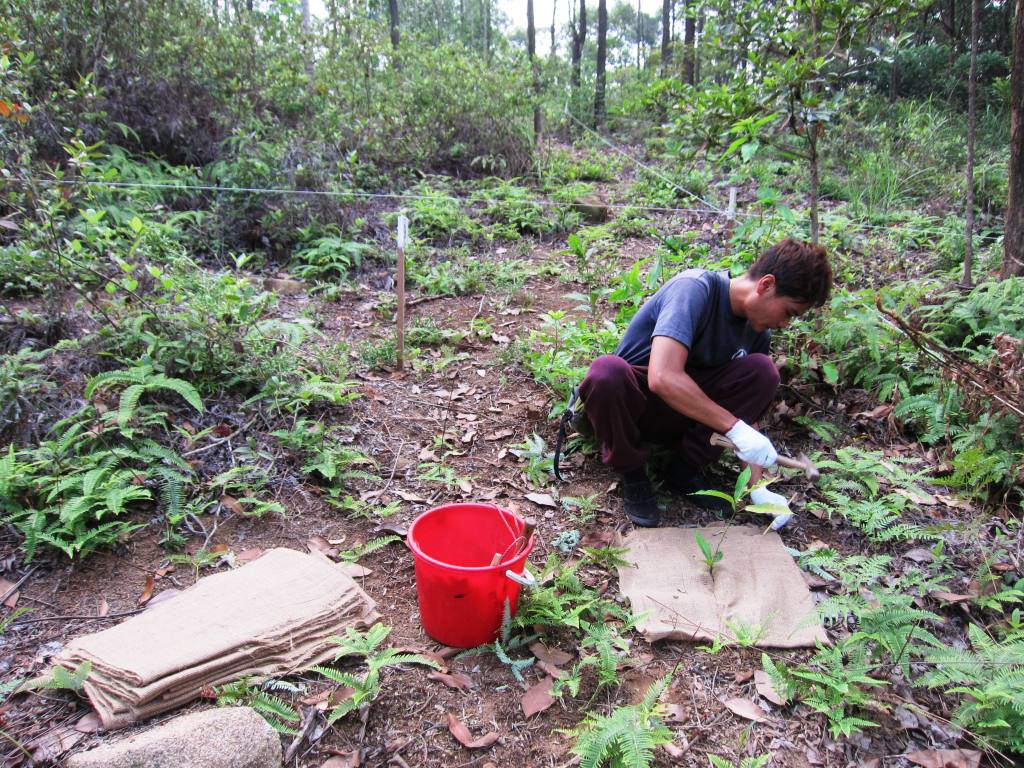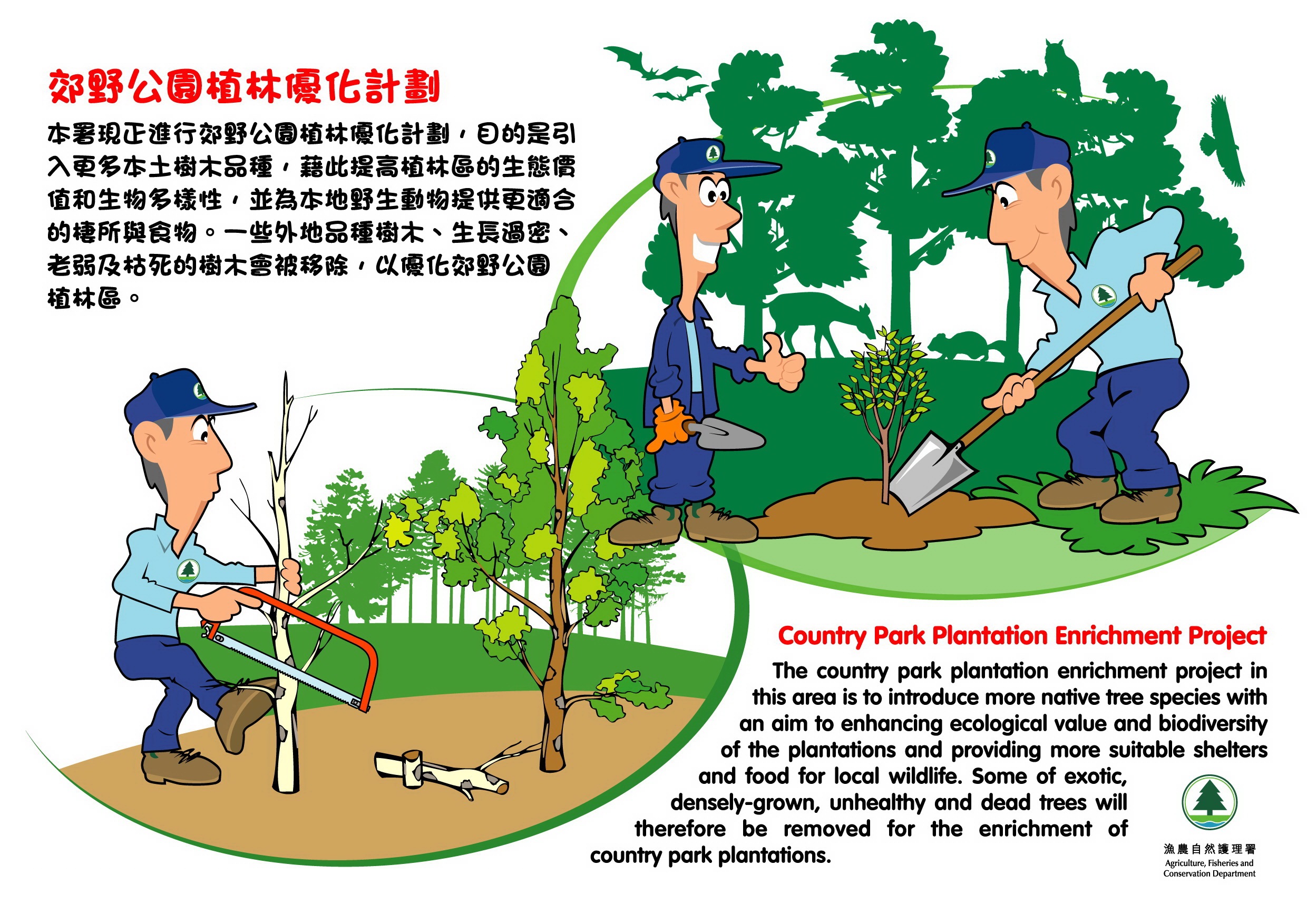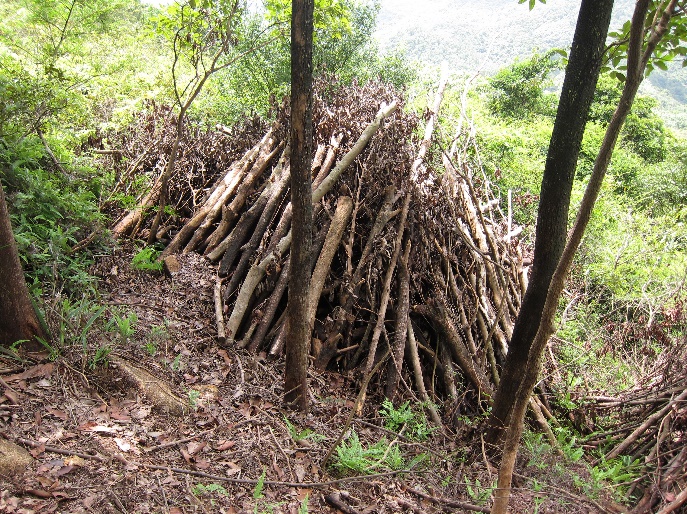|
Exotic plantations established in the early stage of afforestation are proven to perform well in land rehabilitation and soil erosion control, however, they are facing certain problems such as aging, crowding and slow natural regeneration of native plants. Moreover, they provide less suitable habitats and food sources to native wildlife.
Hence, the Agriculture, Fisheries and Conservation Department (AFCD) launched the “Country Parks Plantation Enrichment Programme (PEP)” in 2009 with the following main objectives:
- to increase biodiversity and ecological value of exotic plantations in country parks;
- to enhance the sustainability of the plantations, and
- to improve the health of trees within and reduce the chance of pest outbreaks.
Major enrichment measures generally include thinning of aging exotic tree species, planting of native tree seedlings and post-planting maintenance (weeding, fertilizing and pruning, etc.). Successful transformation of each site would require the investment of several years worth of enrichment work.
|

Selecting aged, dead or unhealthy exotic trees for thinning
|

Thinning of exotic species
|
|

Plantation after thinning by chessboard method
|

Planting of native seedlings
|
|

Adding fertilizer to seedlings
|

Weed control measures for seedlings
|
In 2009-2025, about 143 hectares of exotic plantations in country parks were engaged under PEP. About 280,000 seedlings comprising nearly 100 native species were in-planted in PEP sites. Major native species planted include Hong Kong Gordonia (Polyspora axilllaris), Machilus (Machilus spp.), Rhodoleia (Rhodoleia championii) and Sweet Gum (Liquidambar formosana), etc. All these native seedlings were produced by AFCD’s Tai Tong Nursery.
When native seedlings reach maturity, they will be able to provide suitable food and shelter to native wildlife and enhance the biodiversity of the sites. In view of the beneficial effects of PEP, AFCD will continue to carry out PEP and extend the programme to gradually cover more exotic plantations in country parks.
If you encounter the following sign in country parks, it means that PEP work is being conducted nearby.

What would happen to the thinned exotic trees? Click here to learn more.

|